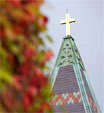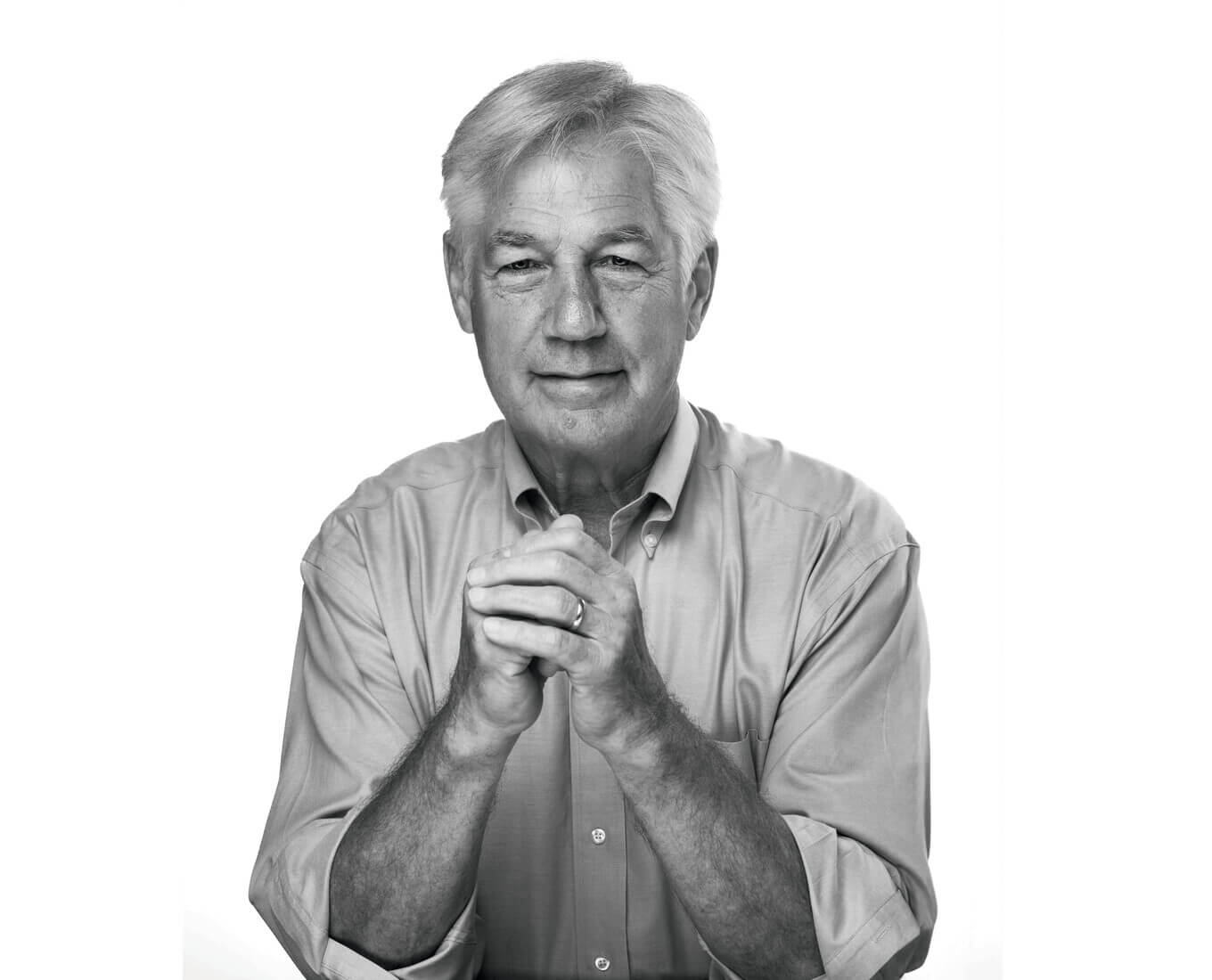 The Center for Religion, Ethics and Culture at the College of the Holy Cross is sponsoring a number of lectures by noted experts in the next month. The talks, which are free and open to the public, will take place in Rehm Library on the campus.
The Center for Religion, Ethics and Culture at the College of the Holy Cross is sponsoring a number of lectures by noted experts in the next month. The talks, which are free and open to the public, will take place in Rehm Library on the campus.
Oct. 5 at 4 p.m. — Robert Kane ’60, University distinguished teaching professor at the University of Texas at Austin, will give a talk titled “The Modern Moral Maze: Seeking Common Ethical Ground in a Pluralist Society and World.”
We live in a world of conflicting voices, philosophies, religions and clashing points of view about fundamental matters of value and ethics, says Kane. Only the most unthinking persons can fail to be affected by this modern Tower of Babel and not wonder as a consequence about the truth of their own beliefs. Are there objective values and can we find common ethical ground in the welter of conflicting voices and beliefs? The lecture will address such questions. Its theme is that reflection on modern pluralism and differences of value does not lead to relativism, or the view that there are no objective values or ethical standards that hold for all persons at all times. Such reflections, to the contrary, if properly understood as part of a search for wisdom, lead to some universal values and ethical principles. The implication of this fact for ethics, religion, politics and contemporary life will be explored in the lecture.
Kane is the author of seven books and more than 60 articles on the philosophy of mind and action, ethical theory and social ethics, the theory of value, philosophy of religion and philosophy of science, including Free Will and Values (State University of New York Press, 1985), Through the Moral Maze: Searching for Absolute Values in a Pluralistic World (Sharpe, M.e., Inc., 1996), The Significance of Free Will (Oxford, 1996), A Contemporary Introduction to Free Will (Oxford University Press, 2005) and a lecture series on audio and video tape titled The Quest for Meaning: Values, Ethics and the Modern Experience. He is editor of The Oxford Handbook of Free Will (Oxford, 2002) and a multiple contributor to the Cambridge Dictionary of Philosophy. His book, The Significance of Free Will, was the first annual winner of the Robert W. Hamilton Faculty Book Award. At the University of Texas, Kane has received 15 major teaching awards, including the Friar Society Centennial Teaching Award, the President’s Excellence Award for teaching in the University’s Honors Program, and the Liberal Arts Council Teaching Award. In 1995, he was named an inaugural member of the University’s Academy of Distinguished Teachers.
Oct. 12 at 4:30 p.m. — Joanne M. Pierce, associate professor of religious studies at Holy Cross, will speak on “The Rosary: Rediscovering the Past.”
No devotion has been so strongly identified with Roman Catholicism as the Rosary, says Pierce. And yet, for many Catholics, recitation of the Rosary seems to have become a thing of the past, relegated at best to the realm of pre-Vatican II nostalgia. But for other Catholics, recitation of the Rosary has become a kind of “orthodoxy test,” marking the “real” Catholics from the rest. Clearly, the real riches of the Rosary must be rediscovered for the 21st century. Pierce hopes this talk will serve as a beginning as it covers the historical development of the devotion in medieval and early modern (Western) Europe and concludes with observations about its role in the life of the Church today.
Pierce teaches historical and sacramental/liturgical theology at Holy Cross. She received her Ph.D. in theology (liturgical studies) from the University of Notre Dame, and specializes in medieval liturgy. She is co-editor of Source and Summit: Commemorating Josef A. Jungmann, S.J. (Liturgical Press, 1999). She serves as a member of the Anglican-Roman Catholic Consultation in the United States, and on the editorial board for the publication of the Proceedings of the North American Academy of Liturgy.
Oct. 12 at 7:30 p.m. — Richard W. Garnett, associate professor of Law at the University of Notre Dame, will give a talk as part of the Hesburgh Lecture of the Notre Dame Club of Worcester County. The talk is titled “Religion in the Public Square: What Do Our Constitution and Traditions Have to Say?”
Particularly in the wake of the 2004 election, the Pledge of Allegiance case, and the Terri Schiavo controversy, the always-bubbling debate about the appropriate role of religious believers and arguments in public life has reached a full boil. Our Constitution, it is often said, prescribes a “separation of Church and state.” How should we understand this prescription and what does it require of religious believers and institutions that engage in public and political life?
Garnett is associate professor of law at Notre Dame Law School, where he teaches and writes about criminal law, capital punishment, religious freedom, and the freedom of speech.
The Hesburgh Lecture Series brings the Notre Dame campus to its alumni and communities; strives to encourage intellectual dialogue between alumni, community members, and the distinguished faculty of Notre Dame; addresses issues reflective of the unique strengths of the University (leadership in family life, church issues, ethical concerns, social problems, political questions, spiritual life, and the liberal arts); and revitalize the intellectual spirit of both the graduate and the faculty.
Oct. 17 at 4 p.m. — Ellen Perry, professor of classics at Holy Cross, will give a talk as part of the “Celebration of Books” series with a discussion on her book, The Aesthetics of Emulation in the Visual Arts of Ancient Rome (Cambridge University Press, 2005).
The book examines Roman strategies for the appropriation of the Greek visual culture and argues that the scholarship on this topic, dominated by copy criticism (Kopienkritik), has not appreciated Roman values in the visual arts. Perry analyzes the Roman aesthetics that lie at the core of the visual conservatism — and innovation — in the art of that civilization. These attitudes help to explain the preponderance of copies, exact or free, after the sculpture of great Greek masters in Roman art. A knowledge of Roman values, Perry demonstrates, explains the entire range of visual appropriation in Roman art, which includes not only the phenomenon of copying, but also such manifestations as allusion, parody, and most importantly aemulatio, successful rivalry with one’s models.
Leila Philip, assistant professor of English, will review the book. Perry will respond with her own remarks and an open floor discussion will follow. The event is the continuation of a series of discussions of books by faculty that run across the concerns of the Center — religion, ethics and culture.
Oct. 19 at 7:30 p.m. — Julie Reuben, professor of education at the Harvard Graduate School of Education who researches the role of education in American society and culture, will speak on “Authority, Allegiance, and Advocacy: Religion and Politics in American Higher Education.”
Throughout its history, American higher education has included some form of religious and political education, linked to colleges’ commitment to the moral formation of their students and their service to the larger society. Both religion and politics, therefore, have been seen as a central and enduring part of the mission of higher education. But both have also been a problematic part of American higher education, particularly in the 20th century, when strong religious or political commitments seemed to conflict with the research ideals of openness and objectivity, and the demands of a pluralistic society. The talk will compare the history of religion and politics in order to better illuminate the possibilities and limits of their respective roles in contemporary American higher education.
Reuben is author of The Making of the Modern University: Intellectual Transformation and the Marginalization of Morality (University of Chicago Press, 1996) about the secularization of higher education at the end of the 19th century. She is currently at work on a book titled Campus Revolts: Politics and the American University in the 1960s.
This series explores the place of religious and spiritual life in a world that is sometimes at odds with faith, other times in search of it, and always at work reshaping it.
Oct. 23 at 7:30 p.m. — Sister Sandra M. Schneiders, professor of New Testament studies and Christian spirituality at the Jesuit School of Theology at Berkeley, will give a talk titled “Christian Mission to the World: What are We Called to and Why.”
Internationally regarded for her work on New Testament literature, Christian spirituality, particularly biblical spirituality, feminism, and religious life, Sister Schneiders will argue that the rootedness of mission and ministry in the Resurrection makes what Christians are up to something other than humanitarian or basic benevolence.
Sister Schneiders has authored several books, including Selling All: Commitment, Consecrated Celibacy, and Community in Catholic Religious Life (Paulist Press, 2001); Finding the Treasure: Locating Catholic Religious Life in a New Ecclesial and Cultural Context (Paulist Press, 2000); With Oil in Their Lamps: Faith, Feminism, and the Future (Paulist Press, 2000); Written That You May Believe: Encountering Jesus in the Fourth Gospel (Crossroad Publishing Company, 2003); and The Revelatory Text: Interpreting the New Testament as Sacred Scripture.
The talk is part of the Lectures on Ministry series, through which church leaders and ministers in a variety of ministries speak about their own vocations and the challenges they see the church needing to focus on in the 21st century. It is presented under the auspices of the College’s Lilly Vocation Discernment Initiative.
Oct. 30 at 4 p.m. — Christina L.H. Traina, associate professor and director of Graduate Studies in Religion at Northwestern University, will give a talk titled “The Sins of Parents: Justice, Love, and Children.”
Traina specializes in Christian theology and ethics, with emphasis on Roman Catholic and feminist thought. Areas of special interest include childhood, sexuality and reproduction, environment, and the ethics of economic justice.
She is the author of Natural Law and Feminist Ethics: the End of the Anathemas (Georgetown, 1999). She is writing a book titled The Sensual Mother: Maternal Experience and the Boundaries of Sexual Ethics (University of Chicago Press).
Holy Cross Center for Religion, Ethics and Culture to Sponsor October Series of Public Events
Read Time
8 Minutes

